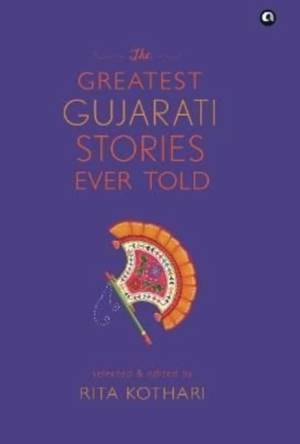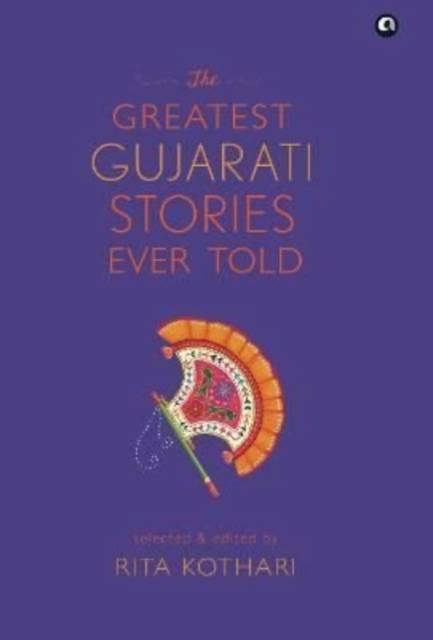
- Afhalen na 1 uur in een winkel met voorraad
- Gratis thuislevering in België vanaf € 30
- Ruim aanbod met 7 miljoen producten
- Afhalen na 1 uur in een winkel met voorraad
- Gratis thuislevering in België vanaf € 30
- Ruim aanbod met 7 miljoen producten
Zoeken
€ 48,95
+ 97 punten
Omschrijving
The twenty-three stories in The Greatest Gujarati Stories Ever Told represent some of the finest short fiction in Gujarati literature. Selected and edited by translator and writer Rita Kothari, this collection features established literary masters such as K. M. Munshi, Dhumketu, Himanshi Shelat, Dalpat Chauhan, Nazir Mansuri, and Mona Patrawalla, as well as accomplished new voices such as Panna Trivedi, Abhimanyu Acharya, Raam Mori, and others. In K. M. Munshi's epistolary 'A Letter', a childbride is worked to her death as she yearns for her husband's affection; in Neerav Patel's 'Creamy Layer', the politicized, urban, and upwardly mobile Mr and Mrs Vaghela must confront the deep chasm that has grown between them and their family in the village; in Panna Trivedi's 'Maajo', the story's eponymous young narrator longs for butter-soft skin and a Shah Rukh-like glance from a young man on the train; in 'Saubhagyavati: The Fortunate Wife', Dwiref explores the selfish and oppressive nature of marital sex; in 'A Drop of Blood' Jayant Khatri looks at how violent acts engender more violence; Mona Patrawalla explores the tribal region of the Dangs and paints a hairraising picture of the violent forms of power wielded by the Parsi landlords there in 'The Black Horse'; in Dashrath Parmar's 'Nandu', the narrator struggles to hide his caste in the face of insistent questions; in 'Jumo Bhishti' by Dhumketu, we see the wonderful bond between Jumo and his beloved buffalo, Venu; and in Abhimanyu Acharya's 'Chunni', a young woman, Shaili, navigates the world of dating in a city far away from home--these and other stories in the collection are passionate, profound, and timeless, showcasing a range of styles and offering a variegated and singular picture of Gujarat.
Specificaties
Betrokkenen
- Auteur(s):
- Uitgeverij:
Inhoud
- Aantal bladzijden:
- 260
- Taal:
- Engels
Eigenschappen
- Productcode (EAN):
- 9789391047481
- Verschijningsdatum:
- 5/01/2022
- Uitvoering:
- Hardcover
- Formaat:
- Genaaid
- Afmetingen:
- 140 mm x 216 mm
- Gewicht:
- 462 g

Alleen bij Standaard Boekhandel
+ 97 punten op je klantenkaart van Standaard Boekhandel
Beoordelingen
We publiceren alleen reviews die voldoen aan de voorwaarden voor reviews. Bekijk onze voorwaarden voor reviews.











